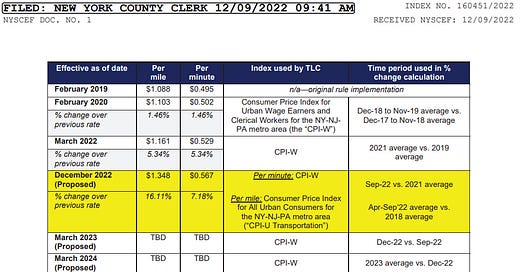👩⚖️ Uber Brings Case Against NYC TLC, Questioning Inflation Metrics Used For Driver Pay Increase
Uber believes the NYC TLC used misleading inflation calculations to unlawfully push through an abnormal driver pay increase. Do they have a point or are they illegally delaying a driver pay raise?
Keep reading with a 7-day free trial
Subscribe to AutoMarketplace to keep reading this post and get 7 days of free access to the full post archives.




